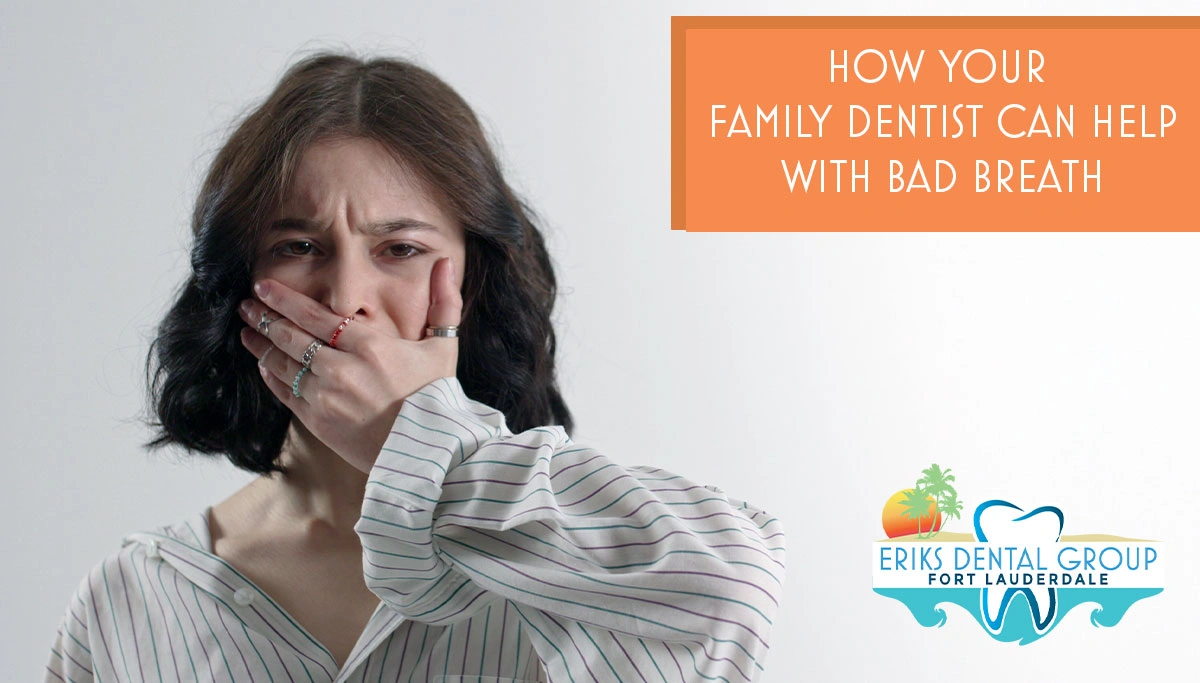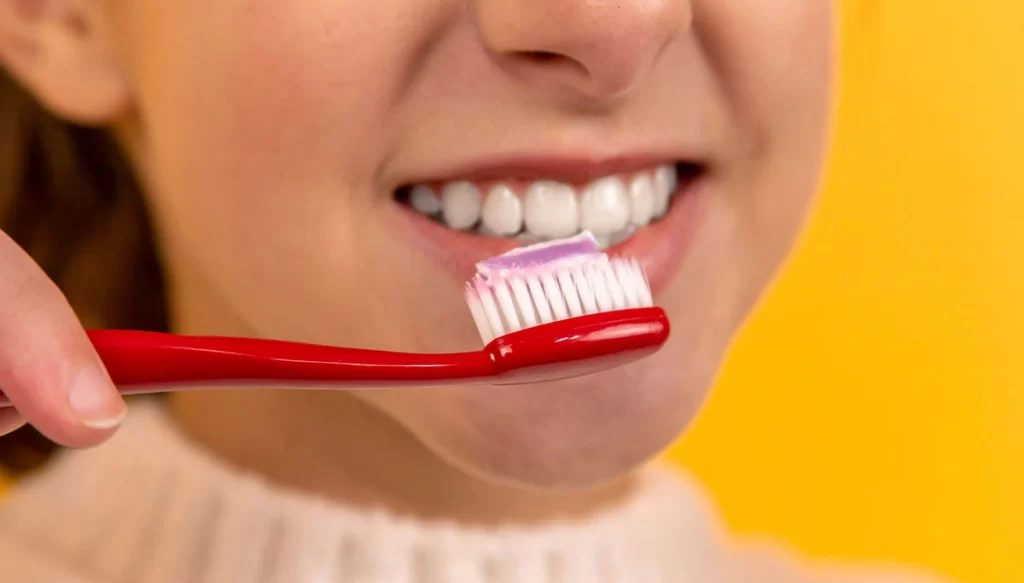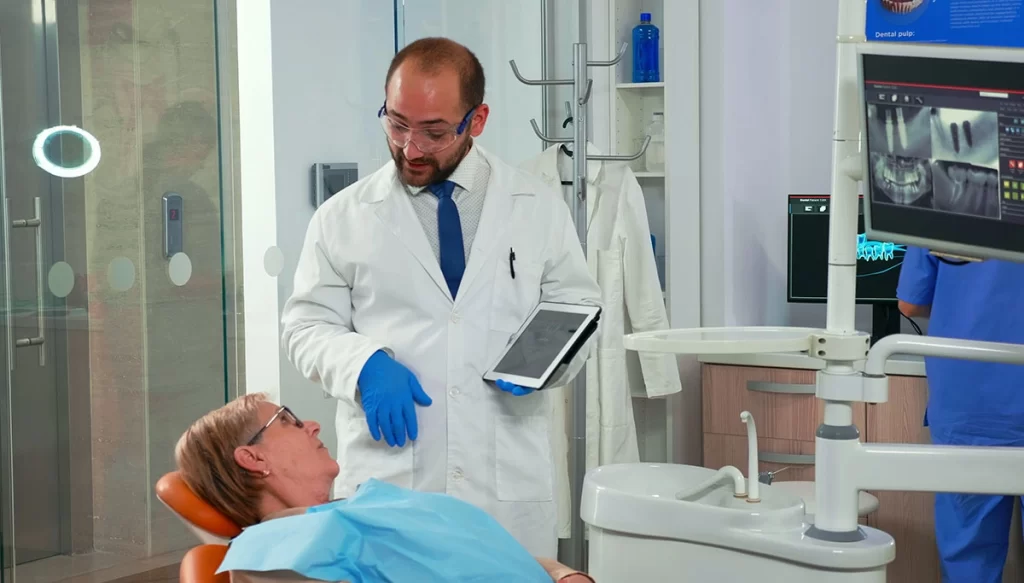
Your family dentist is here to help you with all matters concerning oral health: from cavities, to gingivitis, to bad breath. Officially called “halitosis,” this can be caused by the raw onions you ate for lunch, or something more complex (but treatable). If people in your life have complained about your breath, it may be worth addressing at your next appointment.
Read on to learn more about how your family dentist can address and treat bad breath.

First and foremost, bad breath is addressed by having a regular cleaning regimen. This not only addresses bad breath, but will prevent a host of other health issues as well. Regular brushing and flossing helps prevent cavities, keeps gums healthy, and yes, fixes most cases of bad breath. Tooth brushing is far more effective than breath mints or chewing gum!
However, your family dentist may treat bad breath in the following ways:

If your bad breath isn’t caused by a more serious issue like gum disease, the following home remedies will address the issue.
Experts recommend brushing your teeth at least twice a day. However, if bad breath is a significant problem, you may want to have a toothbrush in your desk at work, or some other accessible place, to brush more frequently. Use a toothpaste with antibacterial properties.
That plaque that gets stuck in your teeth after eating isn’t just unsightly: it’s directly causing bad breath! Keep floss handy to remove plaque after every meal to keep your breath fresh.
It may sound silly, but remember to take a couple swipes at your tongue with your toothbrush after you spit into the sink. The tongue is a popular hangout spot for odor-causing bacteria. You can use your toothbrush, or invest in a mouth scraper.
If you use retainers, dentures, or other gear, it’s important to keep it clean. Soak these appliances in the appropriate cleaner before putting it into your mouth. Ask your dentist about the best cleaning products to use. You can also brush your appliances with a toothbrush.
Drinking water has numerous health benefits: treating bad breath being among them. Keep a water bottle on your desk or in some accessible place throughout the day so you remember to stay hydrated. Remember, only water has true hydrating benefits: not tea, juice, or sodas. If dry mouth is an issue, your doctor may have an additional solution.
As with drinking water, a healthy diet is good for both the body and breath. In addition to obvious culprits, such as garlic or onions, sugary snacks also worsen breath. Keep these at a minimum for optimum health, oral and otherwise.
Your toothbrush will eventually become frayed and ineffective after a few months. Experts recommend changing it every three to four months or so, or six months at the latest. Choose a brush with soft bristles, or use an electric one to keep gums healthy.
Regular cleanings with your family dentist can address any cavities, gum disease, and other issues that can cause bad breath. It’s recommended to see your family dentist every six months for optimum oral health.

If you’re seeing your dentist with concerns about bad breath, it’s recommended to go earlier in the day. This is because any food you eat throughout the day will affect the assessment of your breath. Try not to mask the smell with any lotions, perfumes, or scented lip balms. Be sure to mention any medications you’re taking, as some of these can have bad breath as a side effect.
To get an accurate assessment of your oral health, your dentist may ask the following questions:
In the absence of an obvious cause, like gum disease or plaque buildup, your answers will help your dentist recommend a treatment for fresher breath.

Bad breath can be a symptom of a larger problem, or just a pesky annoyance. Regardless, it’s important to see your family dentist regularly to keep your smile happy and healthy. Eriks Dental Group in Fort Lauderdale is your one-stop-shop for everyone in the family. From baby’s first teeth, to Grandma’s first set of dentures, we treat everyone!
To schedule your appointment, or ask about our dental services, call today at 954-463-5051.
© 2025 Eriks Dental Group - Fort Lauderdale - All Rights Reserved. Dental Website Design by Connectica